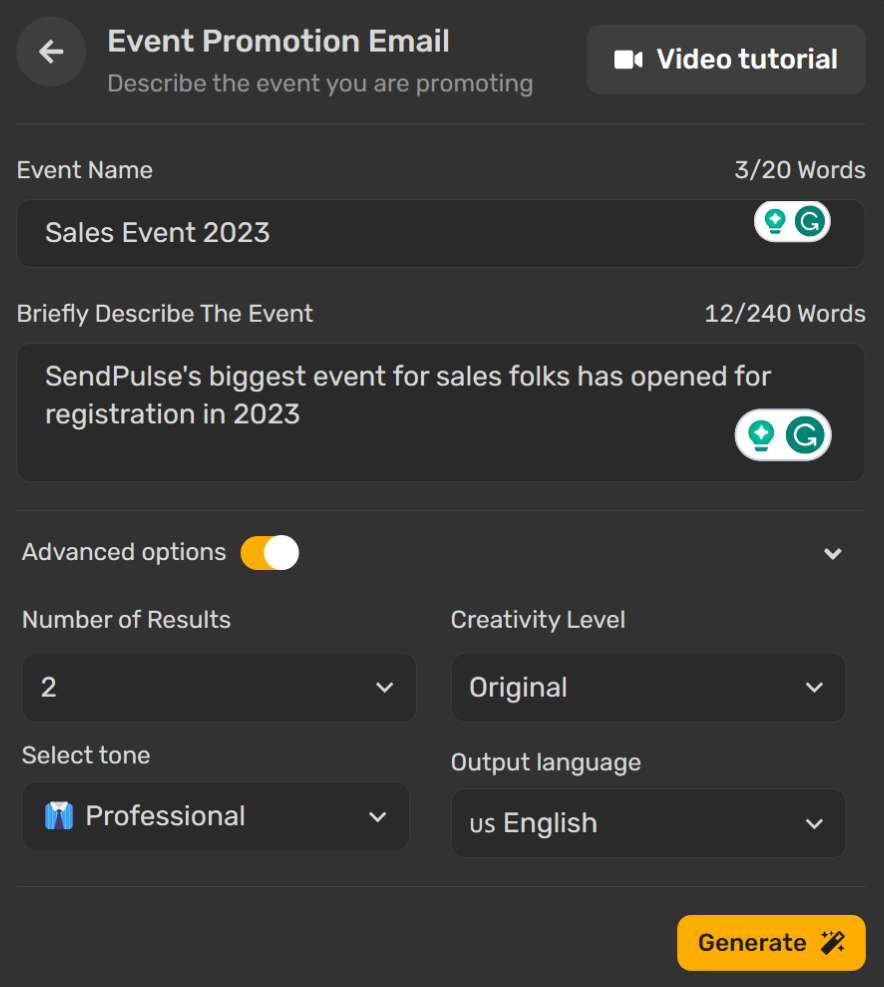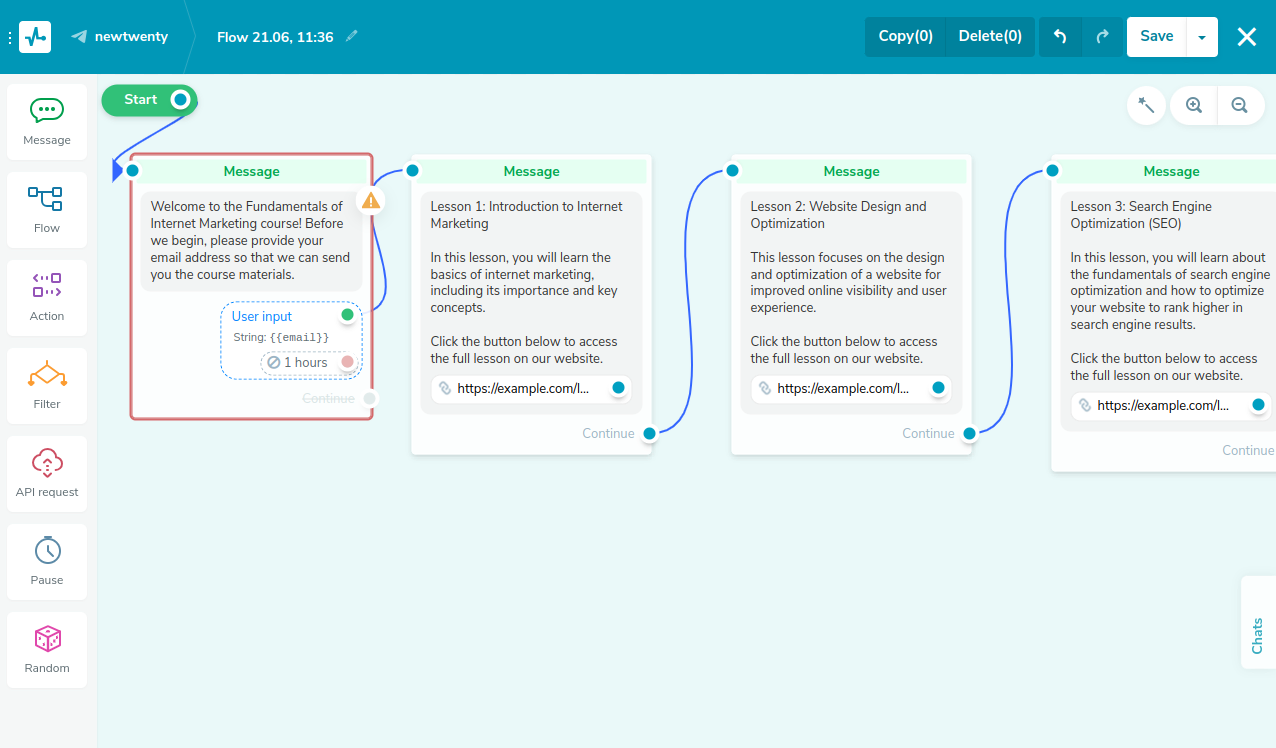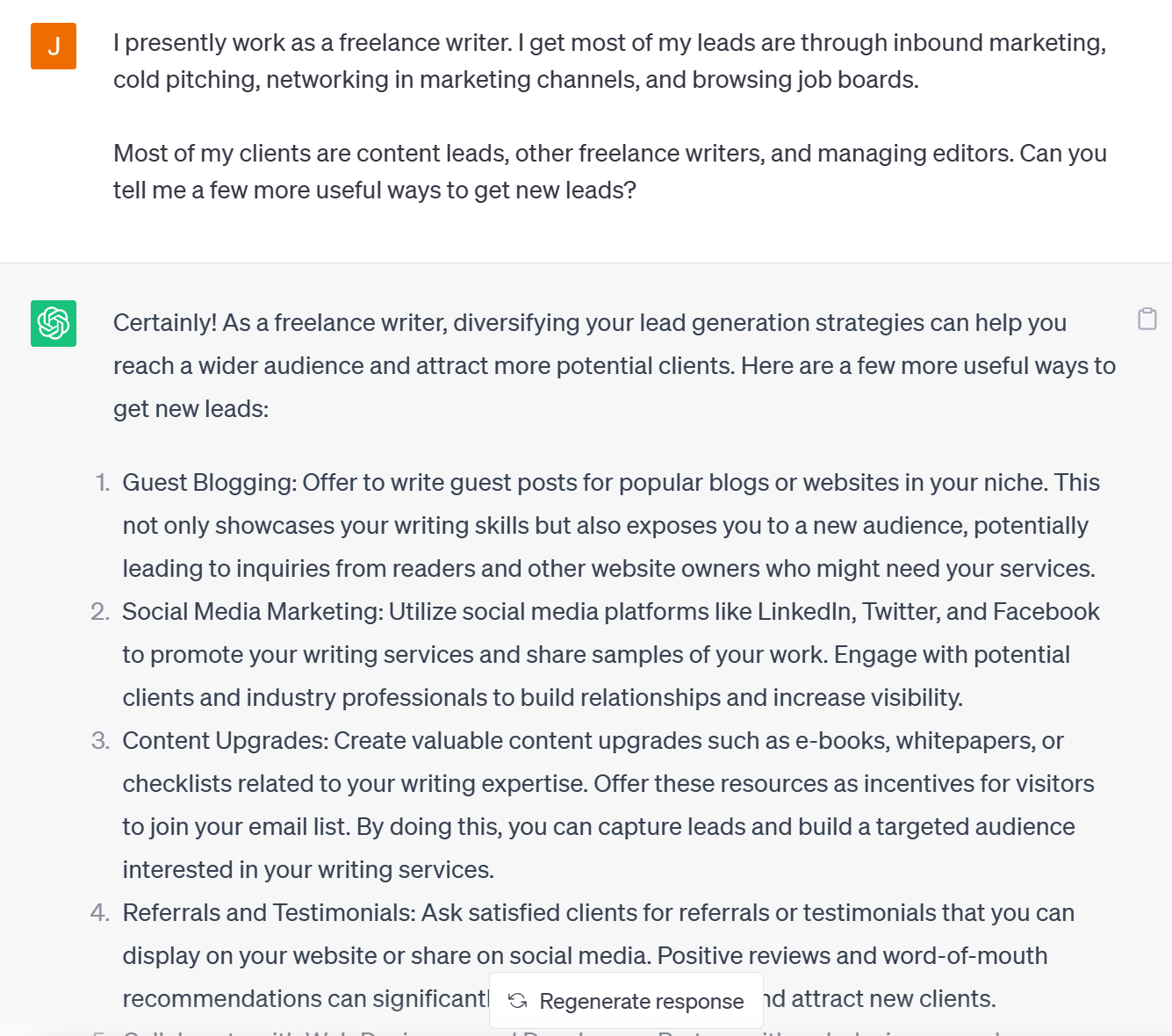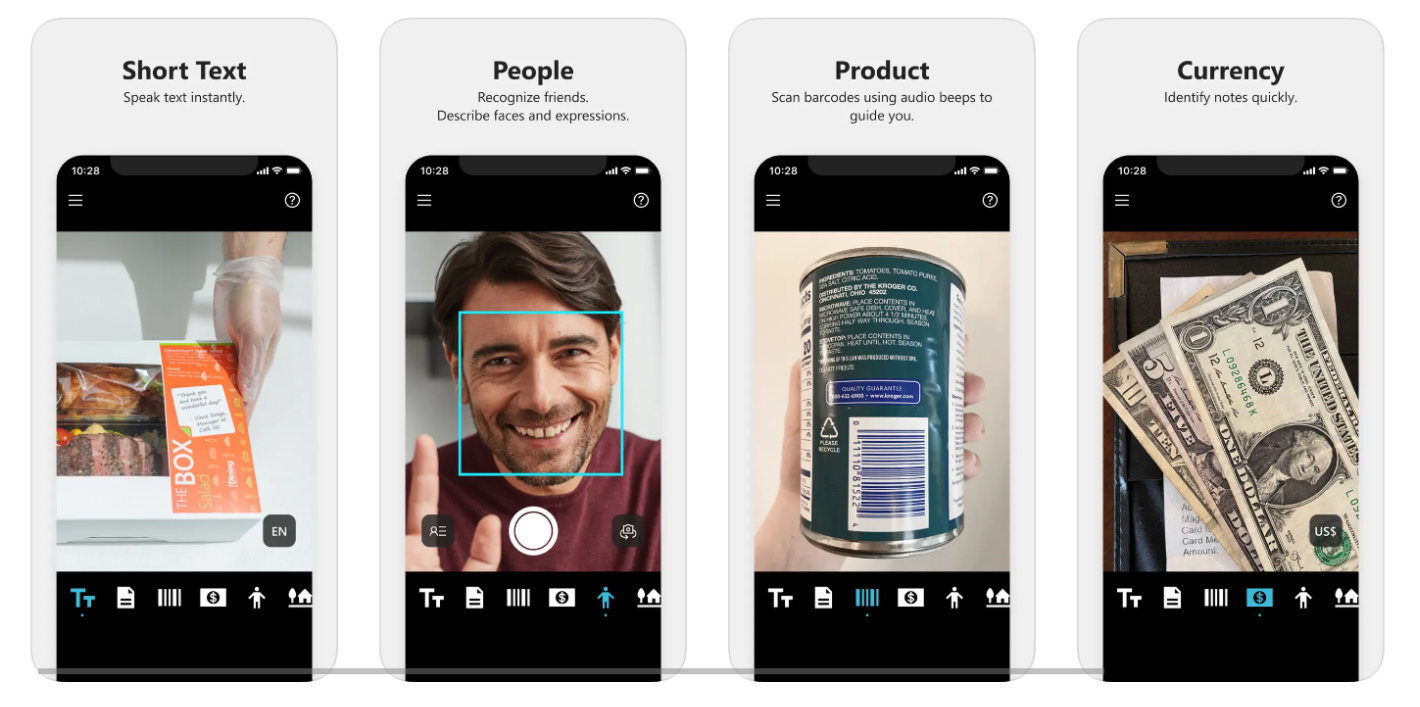In the past few years, artificial intelligence (AI) has emerged as one of the most prominent technological advancements. As it stands today, AI has seamlessly integrated itself into many businesses, and different types of AI have found different levels of adopters. But there’s one significant area that almost every business has integrated AI into, and its sales.
If you’re reading this post, you too might be one of those businesses — someone who already has AI in their sales processes and is looking to learn more avenues for which you can use it. Or you’re new to using AI but want to adopt it to help your team members transform customer engagement and close deals more efficiently.
And that’s exactly what we’re covering in this piece!
So, without further ado, let’s get started to understand how you can use different types of artificial intelligence — generative, traditional, and sales-focused — to improve your B2B sales processes.
Forecast sales through analytics
One of the most important verticals for which all sales teams can use AI is to safely forecast sales. Doing so will make your forecasts more accurate by reducing human errors and make you able to make data-driven decisions at a moment’s notice.
Moreover, with AI, your forecasts wouldn’t only rely on historical data but also real-time insights.
Some of the other benefits of sales forecasting with AI would be:
- creating manageable sales targets;
- managing resources efficiently;
- effectively managing risks (like employee burnout);
- ordering and managing inventory smartly.
Get access to convert-ready leads
Next up on the list is using AI to understand which leads are ready to convert and which aren’t, which is possible by implementing lead-scoring models.
Many businesses, like RJ Living, are now using AI to create automated leads scoring models to understand which leads to tap into such that they convert. David Janovic, Founder and CEO of RJ Living, says:
One of the biggest positive impacts AI has had on our sales process is improving lead scoring. Not only is AI able to work with much larger datasets, but it’s also able to score large batches of leads in minutes.
This is a process that takes hours to do manually, even working with CRM algorithms that automate a lot of the process. The time saved is incredibly valuable because it frees up reps to spend more time actually selling and not doing backend processes.
Even more valuable than the time saved is the fact that now we’re only reaching out to the most qualified potential customers and not wasting our time on leads that are unlikely to convert.
Manage customer relations
Let’s be real. The number of leads and clients they manage greatly outnumbers your sales folks. Maybe not as much as B2C sales, but you get the picture. So, it might be challenging to keep track of all these leads and potential buyers simultaneously, along with their preferences, behaviors, interactions, and sales funnel stages.
That’s when an AI-driven technology like customer relationship management (CRM) can help. Some of the biggest brands in the world, like Microsoft, Tesco, Toyota, Wells Fargo, etc., use CRM systems to effectively track and manage leads and B2B customers.
Get insights and recommendations
Another helpful component of AI-led technologies in the sales world is that they can provide insights and recommendations.
For example, you can use your CRM systems to understand how your leads or customers prefer to engage, what topics interest them, and what are their buying behaviors. You can also understand sales trends through these insights.
Oh, and some AI-led technologies will even provide recommendations on how to price your products, which leads to target first, and when to sell other products to customers.
Communicate with stakeholders from different regions
It’s entirely possible in the modern, global landscape of 2023, you might have stakeholders such as investors, employees, and customers from different countries and regions. In similar situations, B2B sales teams can use AI to translate their pitches and emails to generate business sales.
In fact, Dan Xie, the CEO of a Hong Kong-based consultancy, says he’s used email marketing providers with translation capabilities to overcome language barriers and launch the business into the global marketplace.
AI has helped us to easily translate emails into our salespeople's preferred language so they can understand the context and respond appropriately. This eliminates the need for manual translations while ensuring accuracy in communication between our team and international clients.
Create personalized emails and presentations
If all sales folks can agree on one thing, it’s that they spend too much time writing emails. So, they’d be happy to know that AI writers now exist in the market and can help you write personalized emails.
 AI writers can help marketers with writing personalized emails; source: Simplified
AI writers can help marketers with writing personalized emails; source: Simplified
Some technologies, like Regie.ai, don’t only stop at writing emails for you, but they also go the extra mile and research your prospects on your behalf, thus improving the quality of your pitches.
Moreover, if you’re not presenting your pitch via email but through presentations, you can rely on AI technologies like Slidesgo to create pitch decks.
We all know that for a customer to be ready to convert, they need to meet your brand at multiple touchpoints. And this can only be done through marketing activities.
And although marketing isn’t directly related to sales, your marketing team’s activities directly impact your sales figure.
Other verticals that are indirectly related to sales but can have a great impact are legal and research — you need to safeguard your sales folks and know your customers well to sell a product efficiently.
And you’d be happy to know that AI can help you in all these verticals. That’s to say:
- it can help you in marketing activities by providing insights on your marketing activities, scheduling content, creating automated campaigns with platforms like SendPulse, etc.;
- it can help in legal activities by generating policies, contracts, and user terms and conditions with privacy policy generators like Termly;
- it can help with research by digging through the data you present it with and conducting competitive landscape analysis.
Reduce time spent on automated tasks
Often, sales folks face admin and client-focused tasks that can easily be automated. For example, email follow-ups, scheduling appointments, answering frequently asked questions, updating information from one system to another, etc.
And for reasons like these, AI exists. You can now bid goodbye to repetitive tasks like this through AI technologies like batch emails, automated scheduling, chatbots, and more.
Imagine you don't need to hire more staff to maximize result — just hand over routine tasks to AI. People will make more money for your company because sales managers can focus on important actions, while AI handles the routine tasks.
SourceVladyslav Bohachenko
Head of Sales at RAI
For example, some chatbot builders let you develop chatbots based on different AI models so that your bot can help you with repetitive tasks, freeing up your sales reps for more complex and value-added activities.
 A flow built with the SendPulse AI chatbot maker
A flow built with the SendPulse AI chatbot maker
Manage resources
You can also use AI solutions like ClickUp to manage resources as a sales team. For example, if you’re the sales lead of a company and you have 50 people working under you, keeping track of all their leads and workload might eventually become problematic.
This is why you might benefit from creating resource calendars and project calendars on these apps, which will help you keep a pulse on everything that happens within your department, and allocate resources (such as monies, contact tool credits, and personnel) accordingly.
 Resource and project calendars help you keep a pulse on your department; source: ClickUp
Resource and project calendars help you keep a pulse on your department; source: ClickUp
Match with the right salesperson
In some instances, you might even be able to use AI to match your prospective leads with the right salespeople.
For example, imagine you offer an eSignature tool that any small business can leverage from different niches and specialties. However, to make your pitch more relevant to your prospect, you might just need to match them with a salesperson who understands their industry well and can tailor their pitch accordingly.
Again, if you’re in a large organization, keeping track of all employees and their skills, backgrounds, and areas of expertise might be difficult — that is, unless you have artificial intelligence do the heavy work for you.
In this case, anytime a lead fills out a form stating their industry, the AI technology can then match with the salesperson who’d be best fit for the job of pitching them, depending on their expertise and availability.
Find areas of improvement
Another use case of AI vis-a-vis sales is you can input your strategy on generative platforms like ChatGPT and ask it to identify areas of improvement.
One recommendation would be to create prompts for individual facets of sales rather than your entire sales process. For example, instead of asking it about your B2B sales strategy, you can ask it to find improvements in your lead generation process. If your current process includes finding leads through X, Y, and Z channels, you can ask it to identify new channels you can focus on.
 AI like ChatGPT can help identify specific areas of improvement in your sales strategy
AI like ChatGPT can help identify specific areas of improvement in your sales strategy
Determine opportunities for upselling and cross-selling
Another interesting way you can use AI to your advantage is by asking it to identify upselling and cross-selling opportunities to prospective buyers.
Dan Kahuria, sales specialist at 3DQuouter, explains how this exact process works for him:
I use AI to analyze which of my existing clients will likely want a better version of what they purchased and which ones would be open to an entirely new product. It relies on information such as browser patterns, purchase history, and feedback.
Doing this manually was a guesswork exercise with a success rate of less than 10%. However, my cross-selling and upselling success rate with AI stands at 35%. I also save time spent pitching to unlikely B2B buyers.
Understand your most important sales channels
Artificial intelligence can also help you understand where all your leads come from, which sales channels make the most sense, and how effective your sales collateral has been.
With this data, you can then identify which sales channels to focus on, which type of collateral returns the most money, and which lead generation tactics to pay attention to. For example, you can either double down on your approach, invest money in things that work, like improving the customer journey, or cut down on your investment from channels that haven’t proven effective.
The goal is to make purchasing decisions as easy as possible for prospective customers. So, arm your sales reps with the data to support the most effective solutions. Find out where your ideal customers hang out. Offer potential solutions. And make the selling process as painless as possible for sales managers.
Make communication more accessible
Finally, in today’s day and age, one of AI’s most important use cases would be to make your sales process more inclusive and accessible to all. You should treat everyone as individual consumers with unique needs.
So, you can now use technologies like text-to-speech, alt-text generators, etc., to make communication more accessible. You can also use AI to screen your sales materials and website to ask how accessible or inclusive they are and possible areas of improvement.
Additionally, you can also allow the integration of AI technologies that help everyone access information just the same. For example, apps like Seeing AI can help users with blindness or low vision interpret images without dependencies, and apps like Dictate help others write information with speech-to-text technology.
 Seeing AI helps people with vision impairments identify everyday objects; source: App Store
Seeing AI helps people with vision impairments identify everyday objects; source: App Store
Improve your B2B sales process with SendPulse
We’re all done with the list, but there’s still one crucial technology that can effectively change your B2B sales process — and that’s SendPulse.
SendPulse helps dedicated sales leaders who wish to automate repetitive tasks without spending too much of their budget on sales tools. With our solution, you can automate all parts of your B2B sales cycle: create improved emails, make ready-to-use chatbots, manage your leads through CRM, and develop landing pages bound to convert.
And the best part of it all? You can get started for free! So, what are you waiting for? Sign up with SendPulse now and create an improved sales process from today!